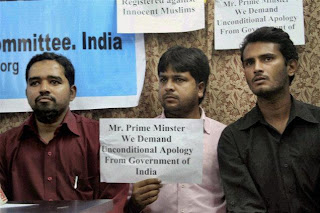The Express Tribune quoting unnamed sources said that call records retrieved from mobile phones found on Davis had allegedly established his links with 33 Pakistanis, including 27 militants from the banned Taliban and Lashkar-e-Jhangvi.
The report claimed Davis was "said to be working on a plan to give credence to the American notion that Pakistan's nuclear weapons are not safe."
"For this purpose, he was setting up a group of the Taliban which would do his bidding," it said.
Davis' job was to trace the links of the Taliban and al- Qaeda in different parts of Pakistan but instead investigators found that he had developed "close links" with the Taliban, the report said quoting a source.
Investigators had reportedly recovered 158 items from Davis, including a 9mm Glock pistol, 75 bullets, a GPS device, an infrared torch, a wireless set, two mobile phones, a digital camera, a survival kit, five ATM cards and Pakistani and US currency. The camera allegedly had photographs of Pakistani defence installations.
The CIA team in Lahore with which Davis was associated "was tasked with tracking the movements of various Pakistani militant groups, including Lashkar-e-Taiba, a particularly violent group that Pakistan uses as a proxy force against India but that the United States considers a threat to allied troops in Afghanistan".
It said Davis, a retired Special Forces soldier, carried out scouting and reconnaissance missions for a CIA task force, working from a safe house in the eastern city of Lahore.
The Obama administration has demanded the release of Davis contending that he is an "administrative and technical official" attached to its Lahore consulate and that he enjoys diplomatic immunity.
Pakistani leaders, fearful of a public backlash, have turned down the US demand for Davis to be freed on grounds of diplomatic immunity and insisted that his case will be decided by the courts according to the country's laws.
A petition relating to Davis' diplomatic status is pending before a Lahore court. The next hearing is on March 14. JuD terrorist outfit has demanded that Davis be executed and blamed the US for bomb blasts across the country that have resulted in "large-scale killings." Hundreds of supporters of the Jamaat-ud Dawah (JuD) joined a gathering that marched from Chauburji to Qurtaba Chowk yesterday to demand "death" for Davis.

































